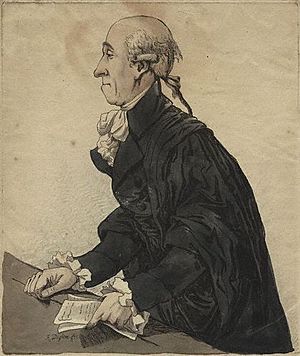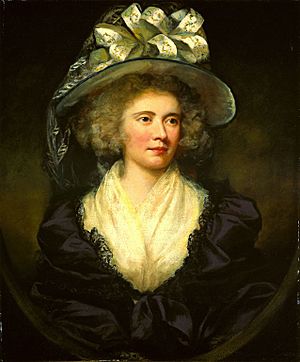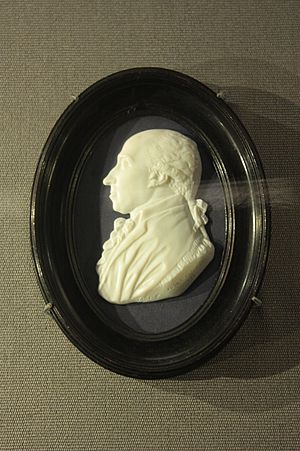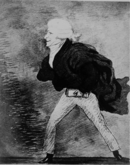Allan Maconochie, Lord Meadowbank facts for kids
Quick facts for kids
Lord Meadowbank
|
|
|---|---|

Allan Maconochie, etching by Robert Dighton.
|
|
| Born | 26 January 1748 |
| Died | 14 June 1816 (aged 68) Edinburgh
|
| Nationality | Scottish |
| Alma mater | University of Edinburgh |
| Occupation | Advocate, judge |
Allan Maconochie, known as Lord Meadowbank, was an important Scottish lawyer, judge, and farmer. He lived from 1748 to 1816. He was also a respected scholar and a member of important societies like the Royal Society of Edinburgh.
Contents
Life of Lord Meadowbank
Early Life and Education
Allan Maconochie was born on January 26, 1748. He was the only son of Alexander Maconochie and Isabella Allan. Allan grew up in Kirknewton, Midlothian, Scotland.
He received his early education at home. Later, he attended the High School of Edinburgh. Allan then went to the University of Edinburgh to study law. He also trained with a lawyer named Thomas Tod.
Starting His Career
In 1764, Allan helped start the Speculative Society. This group was for students who wanted to practice public speaking and discuss new ideas. After finishing university in 1768, he traveled to Paris.
He became a qualified lawyer, called an advocate, in Scotland in 1770. He also studied law in England for a short time. Allan spent more time in France before returning to Scotland in 1773.
Public Roles and Achievements
In 1774, Allan was chosen to represent Dunfermline in the General Assembly of the Church of Scotland. This was a big meeting for the Scottish church. In 1779, he became a professor at the University of Edinburgh. He taught about public law and the laws between nations.
He was also a co-founder of the Royal Society of Edinburgh in 1783. This is a famous society for science and learning. He later served as its Vice President. From 1788 to 1796, he worked as a sheriff in Renfrewshire. A sheriff is like a chief legal officer for a region.
Becoming a Judge
In 1796, Allan Maconochie became a judge. He was named a Lord of Session and took the title Lord Meadowbank. He also stopped teaching at the university that year. In 1804, he became a Lord of Justiciary, which meant he heard criminal cases.
In 1815, he helped set up a new court for jury trials. However, his health was not good. He could not take a big part in the new court's work.
Allan Maconochie passed away on June 14, 1816, at age 68. He was buried on his family's estate. People thought he was a good judge, but also a bit unusual. He was known for using a lot of Latin words in court.
Lord Meadowbank's Works
Allan Maconochie was very interested in farming. He wrote a book about how to make fertilizer from peat. He also wrote instructions for foresters. This book was published anonymously, meaning his name was not on it. It was reprinted several times.
He also wrote about bringing jury trials to Scotland for civil cases. This means trials about disagreements between people, not crimes. His essay on European laws was published in the Transactions of the Royal Society of Edinburgh.
Family Life

Allan Maconochie married Elizabeth Welwood in 1774. She was the daughter of Robert Welwood. They had four sons:
- Alexander, who also became a judge and was known as Lord Meadowbank.
- Robert, who worked as a mint master in India.
- James Allan, who was a sheriff in Orkney and Shetland.
- Thomas Tod.
Allan Maconochie also helped raise his younger cousin, Alexander Maconochie. This Alexander later became famous for his ideas on prison reform. Allan was also the grandfather of Professor Allan Alexander Maconochie.
 | William L. Dawson |
 | W. E. B. Du Bois |
 | Harry Belafonte |



